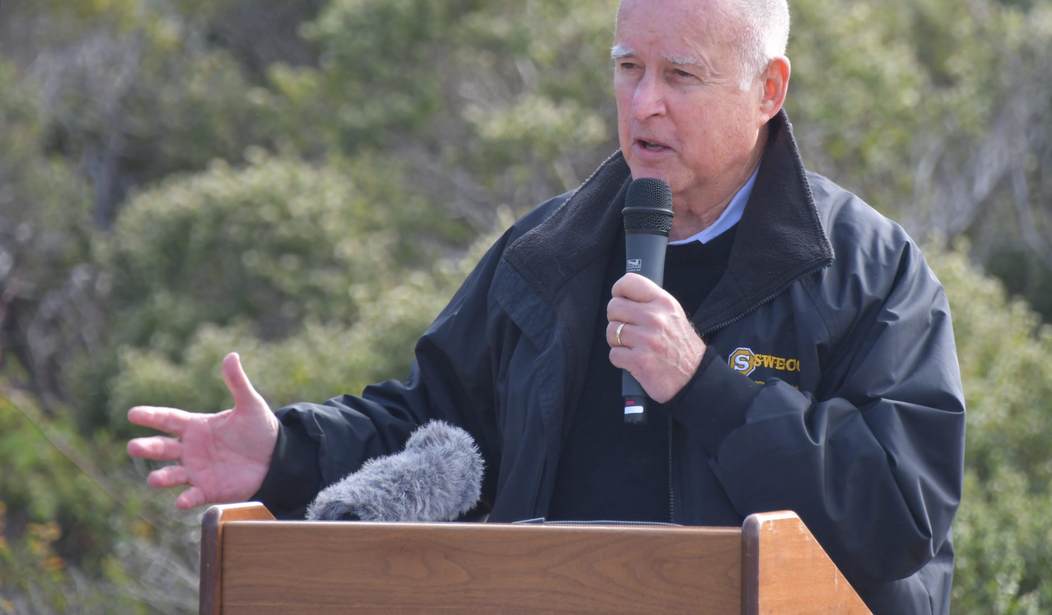Jessy Rosales, a University of California, Riverside, student, complained to HuffPost she had to get a Planned Parenthood abortion in 2016 because she couldn’t get RU-486, the so-called “abortion pill,” on campus.
“Had they provided abortion medication on my campus, I would have been able to get the care I needed when I needed it,” Rosales said.
Two years later, Rosales and other pro-choice advocates can’t believe how far California has not come. Gov. Jerry Brown delivered a September surprise to his fellow liberals and progressives when he vetoed legislation that would have forced all California state colleges and universities to make the pregnancy-ending pills available to students.
Senate Bill 320 covered the University of California and California State University campuses. Community colleges and private universities had an option to participate. Opponents disliked the idea of government-funded facilities and staff dispensing abortion pills and expressed concerns over whether college campuses had the necessary medical and physical resources.
“Abortion harms student success, both mentally and physically, and brings danger to campus,” Anna Arend, Northern California regional coordinator at Students for Life of America, said.
Adiba Khan, a UC Berkeley grad and co-founder of the group Students United for Reproductive Justice, which sponsored the original resolution calling for what became SB 320, said, “Trying to spread access, especially at a time when Roe v. Wade could be overturned, and abortion rights could be obsolete is progressive, affirmative and bold.”
Yet, Gov. Brown declined to sign the legislation.
Brown said in a statement State Bill 320 wasn’t needed because the services required by the bill “are widely available off-campus” and the average distance to abortion providers — five to seven miles — was “not an unreasonable distance.”
Elizabeth Nash, a senior state issues manager with the pro-abortion Guttmacher Institute, was taken aback. She told the HuffPost in an email that, when it comes to abortion, California does everything right. The state forces public and private health plans to include abortion coverage. California does not require kids to ask their parents’ permission before getting an abortion.
“But somehow Gov. Brown couldn’t take the step to actually make sure that abortion is accessible for young people,” wrote Nash.
Adiba Khan blamed “powerful institutions, and specifically the white men who run them,” who “repeatedly denigrated and ignored the lived experiences of women’s sexual assault in favor of protecting their own power.”
“It is unconscionable,” Khan added, “that Gov. Jerry Brown chose to turn his back on students’ experiences and instead hide behind bogus claims to deny increased access to abortion.”
Laura Jimenez, the executive director of California Latinas for Reproductive Justice, also felt let down by the progressive governor of California.
“Students should be able to make the decisions they believe are best for themselves, including the decision to become a parent or end a pregnancy,” Jimenez said.
Pro-life advocates were just as taken aback by Brown’s veto. However, Kathleen Buckley Domingo, senior director of the Office of Life, Justice & Peace for the Archdiocese of Los Angeles, said she was also “grateful” for Brown’s decision.
“He recognized that this bill was unnecessary for California and did not empower our college women, but only offered more abortion for our state,” said Domingo.
Students for Life tweeted its support for Brown’s veto.
“Thank you Governor Brown for VETOING #SB 320,” the pro-life group wrote. “Abortion drugs do not belong on college campuses!”
Here’s a thought: Domingo said California, instead of making it easier for college students to abort unborn babies, should help them care for babies already born.
She’d like to see legislation that would “ensure women’s Title IX protections for pregnancy are known and understood.” Domingo said Sacramento politicians would also be well-advised to make sure parents on college campuses could get child care and find a place to live.
Andy Rivas, executive director of the California Catholic Conference, told the Catholic News Agency he wasn’t surprised by Brown’s veto because nobody except progressive politicians wanted SB 320. Students “were not pushing for passage,” said Rivas, and universities didn’t want the responsibility of handing out abortion pills.
Like Domingo, Rivas hopes the state legislature approves a proposal in 2019 “that students and universities really need, one that provides financial support for students with children.”
State Sen. Connie Leyva (D) won’t be backing that effort. A primary sponsor of the legislation, she promised to re-introduce SB 320 next year and tweeted she “will not stop until there is #AbortionCareOnCampus.”
Sarah Hutchinson, the policy director at ACT for Women and Girls, said Brown’s veto only “intensifies our commitment” to providing RU-486 to California college and university students.
“We’re eager to get back to work to get this done,” Hutchinson said, “and we are confident that our state will soon have abortion care on campus.”









Join the conversation as a VIP Member